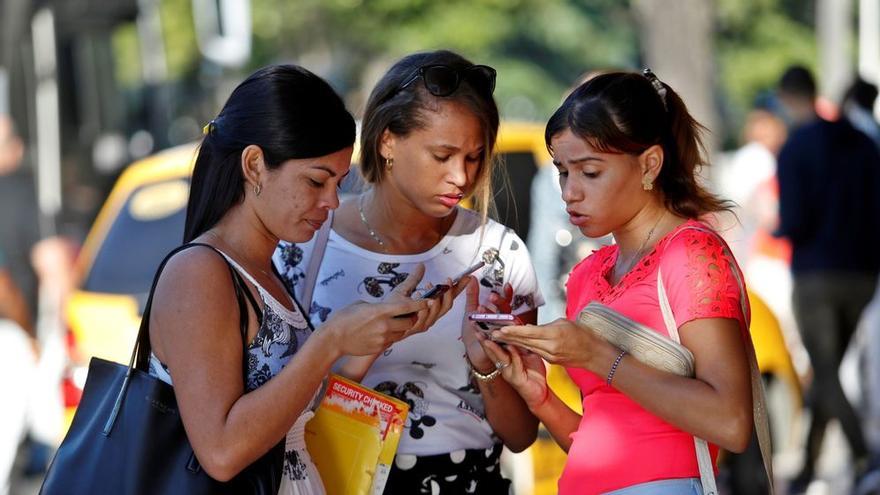
![]() 14ymedio, Yoani Sánchez, Generation Y, 16 December 2023 — This Saturday marks one week since internet service has been cut off on my mobile phone. Coincidentally, it was December, five years ago, when web browsing was allowed for the first time from the cellphones of customers of Cuba’s state telecommunications monopoly, Etecsa. In other words, they implemented the service to later censor it, suspend it and impede its use, in a selective way with obvious political bias.
14ymedio, Yoani Sánchez, Generation Y, 16 December 2023 — This Saturday marks one week since internet service has been cut off on my mobile phone. Coincidentally, it was December, five years ago, when web browsing was allowed for the first time from the cellphones of customers of Cuba’s state telecommunications monopoly, Etecsa. In other words, they implemented the service to later censor it, suspend it and impede its use, in a selective way with obvious political bias.
In these five years, despite the vagaries, infrastructure problems, high prices of recharges and Etecsa’s ‘scissors’, Cuban society has grown thanks to the cracks that have opened in the Communist Party’s wall of information control. Being able to peer into the great Worldwide Web has allowed us to access other voices, stories and testimonies. Now we are less credulous and more demanding as citizens.
Without internet access, the popular protests of 11 July 2021 would most likely not have happened, or would have been smaller. Without the possibility of publishing directly on Facebook or on X (formerly Twitter), we would have missed the opportunity to listen so many voices, the voices of mothers, doctors and family members of political prisoners crying out for justice and a dignified life. Without web browsing on our mobile phones, so many reports of police violence, femicides and administrative corruption would have remained in the shadows.
If the party leaders had had their way, we would still be communicating with smoke signals, tweeting blindly and dictating our texts so that someone else could publish them online
Nevertheless, the current situation with telecommunications is not something to celebrate. Activists held incommunicado around key dates, independent journalists punished with disconnection for narrating the deep Cuba, and the use of instant messaging as a tool to threaten and intimidate citizens from the offices of the political police make up a very dark landscape. The official ‘soldiers of information, the ‘catfishers’
dedicated to the destruction of reputations, and the army of false accounts that create a distorted idea of popular support for the regime have also grown with the massive emergence of web access into our lives.
Although right now my mobile is “dead” and I can’t communicate with the world, make calls or even send a message of a single text, I know that the conversion of Cubans into Internauts has been a bitter pill to swallow for a system that does not support individuals having their own voices, channels chosen by them to inform themselves and consume news content, or or recreational content based on their desires and inclinations. If the party leaders had had their way, we would still be communicating with smoke signals, tweeting blindly and dictating our texts so that someone else could publish them online.
This is our victory, for all of us who pushed for years to be allowed to access the internet. It is, however, a bitter victory, incomplete and undermined. But during this entire month of December, with my mobile working or out of service, I am remembering that end of year in 2018 when we seized from power something that belonged to us.
____________
COLLABORATE WITH OUR WORK: The 14ymedio team is committed to practicing serious journalism that reflects Cuba’s reality in all its depth. Thank you for joining us on this long journey. We invite you to continue supporting us by becoming a member of 14ymedio now. Together we can continue transforming journalism in Cuba.
